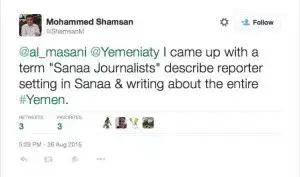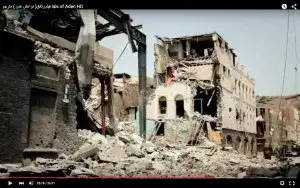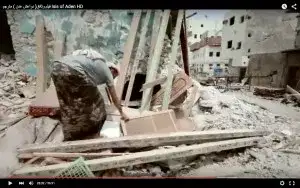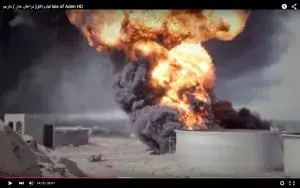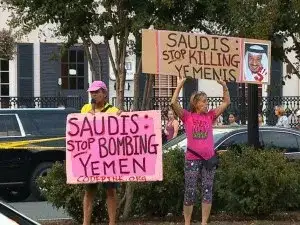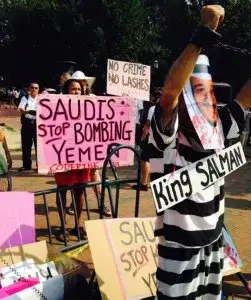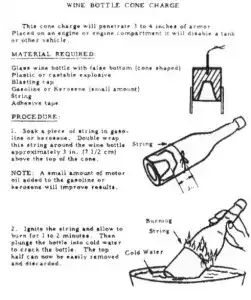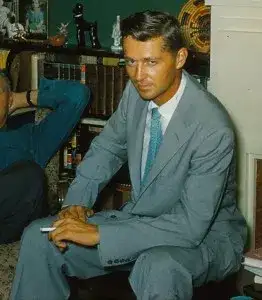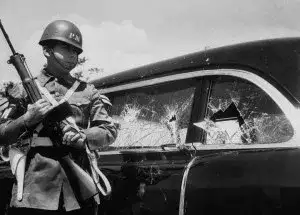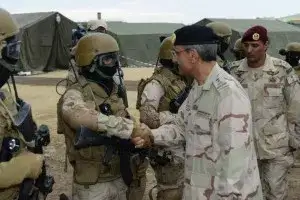Yemen, where journalism killed itself
September 10, 2023 by Thomas Wictor
There’s no question anymore: Yemenis are the victims of one of history’s greatest injustices. Yemen is where journalism killed itself. The press committed suicide in exchange for rooms in five-star hotels and sex. I’m now convinced that nongovernmental organizations (NGOs) use sex the way political lobbyists do. It’s the only possible explanation for the almost inconceivable lies that the press is telling about the war in Yemen.
On September 9, 2009, California Assemblyman Michael D. Duvall—a Republican from Yorba Linda—resigned after a camera and microphone picked up his comments about an affair he was having with Heidi Barsuglia, a lobbyist from Sempra Energy.
Sex with politicians is part of a lobbyist’s job.
“The use of sexual favors is just one more example of the tactics that energy companies and lobbyists have used to win favorable laws from lawmakers,” said Kathay Feng, president of California Common Cause.
I won’t repeat what Duvall said. It was truly disgusting. Here’s Heidi Barsuglia on the left.
And here’s Michael D. Duvall.
Some people will do anything to implement their agenda. Former Associated Press reporter Matti Friedman wrote about the relationship between journalists and NGOs.
The best insight into one of the key phenomena at play here comes not from a local reporter but from the journalist and author Philip Gourevitch. In Rwanda and elsewhere in Africa, Gourevitch wrote in 2010, he was struck by the ethical gray zone of ties between reporters and NGOs.
“Too often the press represents humanitarians with unquestioning admiration,” he observed in The New Yorker. “Why not seek to keep them honest? Why should our coverage of them look so much like their own self-representation in fund-raising appeals? Why should we (as many photojournalists and print reporters do) work for humanitarian agencies between journalism jobs, helping them with their official reports and institutional appeals, in a way that we would never consider doing for corporations, political parties, or government agencies?”
This confusion is very much present in Israel and the Palestinian territories, where foreign activists are a notable feature of the landscape, and where international NGOs and numerous arms of the United Nations are among the most powerful players, wielding billions of dollars and employing many thousands of foreign and local employees.
Their SUVs dominate sections of East Jerusalem and their expense accounts keep Ramallah afloat. They provide reporters with social circles, romantic partners, and alternative employment—a fact that is more important to reporters now than it has ever been, given the disintegration of many newspapers and the shoestring nature of their Internet successors.
A Yemeni’s observation about reporters.
Hotels in Sana’a.
I knew that the press and NGOs were lying about Yemen, but the level of dishonesty is unprecedented. My guess is that it’s a combination of factors: Iran has bought off all parties; weak, dissatisfied westerners feel admiration for the violent and utterly uninhibited Houthis; the narrative is that “The wealthiest Arab nations are waging war on the poorest Arab nation”; and the press has long been accustomed to being stenographers for terrorists.
The press calls the Houthis “rebels,” a term that still means only one thing to the western psyche.
Western idiots on social media handily represent the knee-jerk reaction that western “aid” workers and journalists have. I’m told of “Saudi atrocities,” “Saudi massacres,” and “the Saudi slaughter of civilians.” Well, there’s literally no evidence of these. In fact the opposite is true. The Saudi-led Coalition is fighting the most bloodless major conflict in the history of warfare. The precision and humanity are surreal. There are virtually no photos of civilian casualties because the Coalition has killed almost no civilians.
Put aside half an hour and watch this documentary about how Ansar Allah—the Houthis—behaved in Aden after they entered the city from the north on March 29, 2015. Two small pockets of resistance held out for almost four months, with the help of Coalition naval gunfire, air strikes, special forces, and air-dropped supplies.
There’s a coding error that makes the movie start about thirteen minutes in, so you’ll have to rewind it.
My interest in munitions has paid off again and again. Nobody can fool me into believing that war crimes are being committed. The vast majority of the damage I’ve seen in Yemen was caused by ground-based weaponry: artillery, tanks, infantry fighting vehicles, rocket-propelled grenades, and antitank guided missiles. In other words, the Houthis did it.
We’ve all heard about the Saudi naval blockade. It was requested by Yemeni Foreign Minister Riyad Yasin on April 11, 2015. Did you know that the Houthis had blockaded Aden? Not only that, did you know that they fired on Al-Buraika Port and blew up oil tanks?
Code Pink—Women for Peace—have demanded that Saudi Arabia stop the war against the Houthis.
Code Pink and their ilk refuse to discuss the context of war. In their world of bottomless stupidity, Saudi Arabia is simply killing Yemenis, and it must stop!
Well, does Code Pink care about what the Houthis are doing to gay Yemenis?
They are an extremist religious group sworn to restore the imamate that dominated North Yemen until 1962. As Sameer put it, “Al-Houthi is more or less like Iran. They will have a system like Iran’s, the Khomeini system. Both of them are religious and extremist. I prefer not to live in their area.” The system to which Sameer refers is the harsh legal code instated after Ayatollah Ruhollah Khomeini’s 1979 Islamic Revolution, still enforced under the current leadership of Supreme Leader Ayatollah Ali Khamenei. As mentioned above, Yemen’s death penalty for homosexuals is not enforced, but Iran has a history of executing gay men in a disturbingly public manner. In addition, Iranian officials sometimes torture gay citizens by forcing them into unwanted sex change operations.
Let’s not mince words: The Iranians hang gay men with constructions cranes. They do it slowly and gently, so that death can take as long as twenty minutes.
Houthis destroy churches, exactly the way the Islamic State does. Did you know that?
Al Baderi Church, one of Aden’s most famous landmarks located in the Crater district, was also severely damaged.
The Houthis stormed the church at the start of April, destroyed the statues inside and scrawled slogans on the walls, said Nizar Ali, a guard at the building which dates to the 1920s.
“It was a historic place that many visitors from different religions visited, and this is how Aden used to be, but the Houthi rebels wanted Aden to be the city of war,” he said.
When the Houthis attacked Ali broke into tears and the rebels falsely accused him of not being a Muslim.
“Even if there [is] reconstruction for everything in Aden, I think it is difficult to reconstruct the historic places such as this church,” he said.
Aden represented progress and civilization. That was why the Houthis tried to demolish it. Primitives hate and fear modernity.
Code Pink calls for “peace” with the Houthis and the Iranian mullahs. In my opinion, they should have napalm dropped on them. And so should the Houthis and Iranian mullahs.
I’m my father’s son. Here’s a passage from one of his three unpublished memoirs.
There were some pipeline incidents when we lived in eastern Venezuela in the early sixties. One pipeline about 120 km long lay on sleepers alongside a main road. It wasn’t buried in the ground. At that time Fidel Castro was landing men, weapons, and explosives in support of attempts to overthrow the government. Our pipeline was a frequent target. The saboteurs had a very effective method: They filled the bottom of a wine bottle with plastic explosive. Since the cavity formed a cone, the explosive functioned as a shaped charge.
A mousetrap, a couple of batteries, a detonator, and an ice cube completed the list of necessary materials. The detonator was placed in the plastic explosive and wired to the two batteries. The wires were then hooked to the mousetrap, one on the platform and one on the hammer.
An ice cube was put between the platform and hammer, which allowed the saboteur time to get away. When the ice cube melted, the two wires came together and completed the circuit, detonating the explosive.
We discovered how the system worked when one blew up prematurely, killing the saboteur. DIGEPOL [the Venezuelan secret police] drove up, spraying the countryside with machine-gun fire. They took possession of the late saboteur and his paraphernalia and departed.
No. What actually happened was that my father ambushed the saboteur, shooting and killing him. That’s how they figured out the bomb. My father was a very practical man. He did what it took to get the job done.
My guess is that my father bribed a Venezuelan National Guardsman to lend him his FN FAL rifle.
He was an incredible, long-range marksman, my father, and he loved the FN FAL.
I hate Code Pink. I hate the reporters who are covering up the crimes of the Houthis. I hate the NGOs who are blaming everything on the Saudis. Luckily the Saudis and their allies don’t care what weak, silly, immoral westerners think. Soon Yemen will be free.
And then on to Lebanon, Damascus, and Tehran. Good hunting, men.
This article viewed 794 times.



